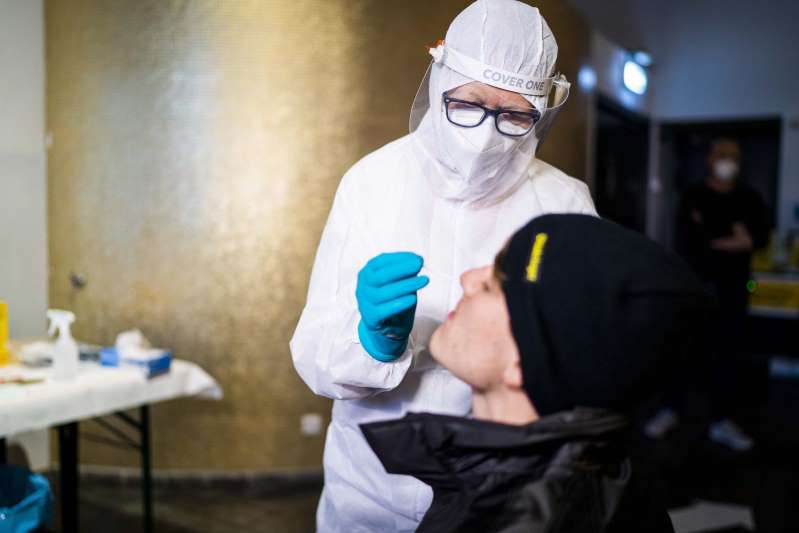The Ottakringer Brewery is one of 910 companies that offer operational tests. These also apply to private activities.

Beer-happy events usually take place in the event rooms of the Ottakringer Brewery, but these days things are much more sober there. Because instead of glasses, cotton swabs are swung and corona antigen tests are carried out on the employees of the brewery.
“The tests are voluntary, 70 to 90 people can be tested per day,” says Tobias Frank, managing director of the Ottakringer brewery. He believes that acceptance in the company is high and that 60 to 70 percent of the workforce will be tested. The advantage for all those who do it: “The test is also suitable for private use,” says Frank. This means that a negative result – i.e. if no infection was found – can open the doors of hairdressers and other body-related services, as well as those of catering and cultural establishments later on.
Easy access
Since the beginning of this week, operational test roads have been relieving the public test infrastructure. 910 companies have currently registered as test stations, which means that 415,000 employees can be reached.
The Federation of Austrian Industries (IV) and the Austrian Chamber of Commerce (WKO) have campaigned for operational tests to become part of the national test strategy. “So far we have faced the pandemic with conventional means, it is important that we do more,” says WKO General Secretary Karlheinz Kopf.
The first lockdown cost the domestic economy 1.3 to two billion euros a week, currently it is around one billion a week. “We can't afford that in the long run,” says Kopf. Comprehensive and regular tests are necessary to get infected people out of the crowd.
“It is important that people can come to the tests in a non-bureaucratic and easy-to-use manner,” says IV Secretary General Christoph Neumayer. This would make people more willing to take the tests.
Hard times
The Ottakringer Brewery is also hoping that the test strategy will take effect quickly, because it has so far been feeling the effects of the corona pandemic. As catering establishments had to close over long periods – as they do now – there was a noticeable decline in sales.
The pandemic hurts Ottakringer more than many other breweries, as the proportion of sales from the catering trade is relatively high at 50 percent. According to Frank, sales in retail can only partially compensate for this, as beer is sold there at a lower price.
He hopes that the restaurants will be able to open again before Easter. He does not anticipate a noticeable return of tourists and the associated relaxation in the market until the third quarter at the earliest.

